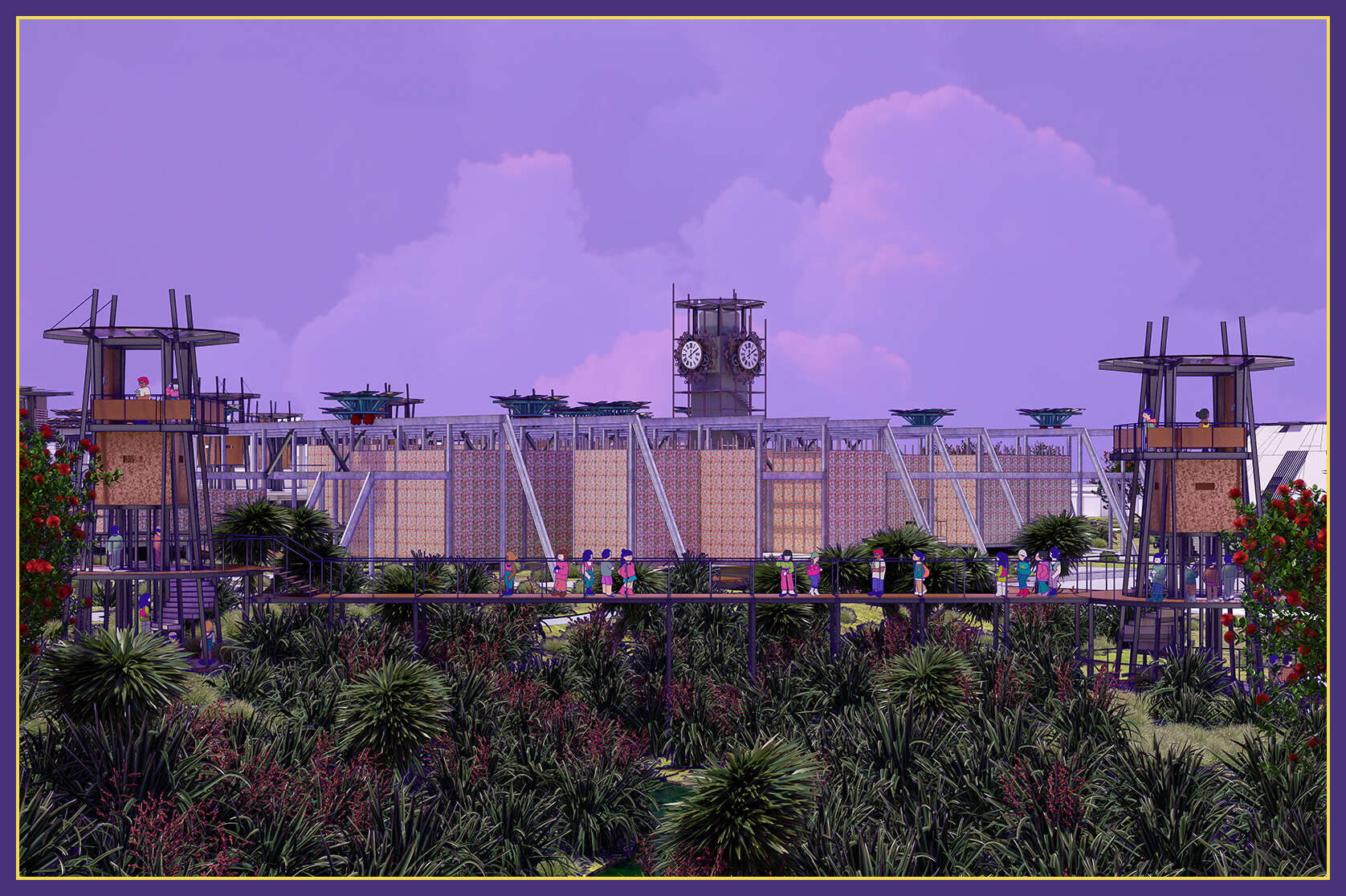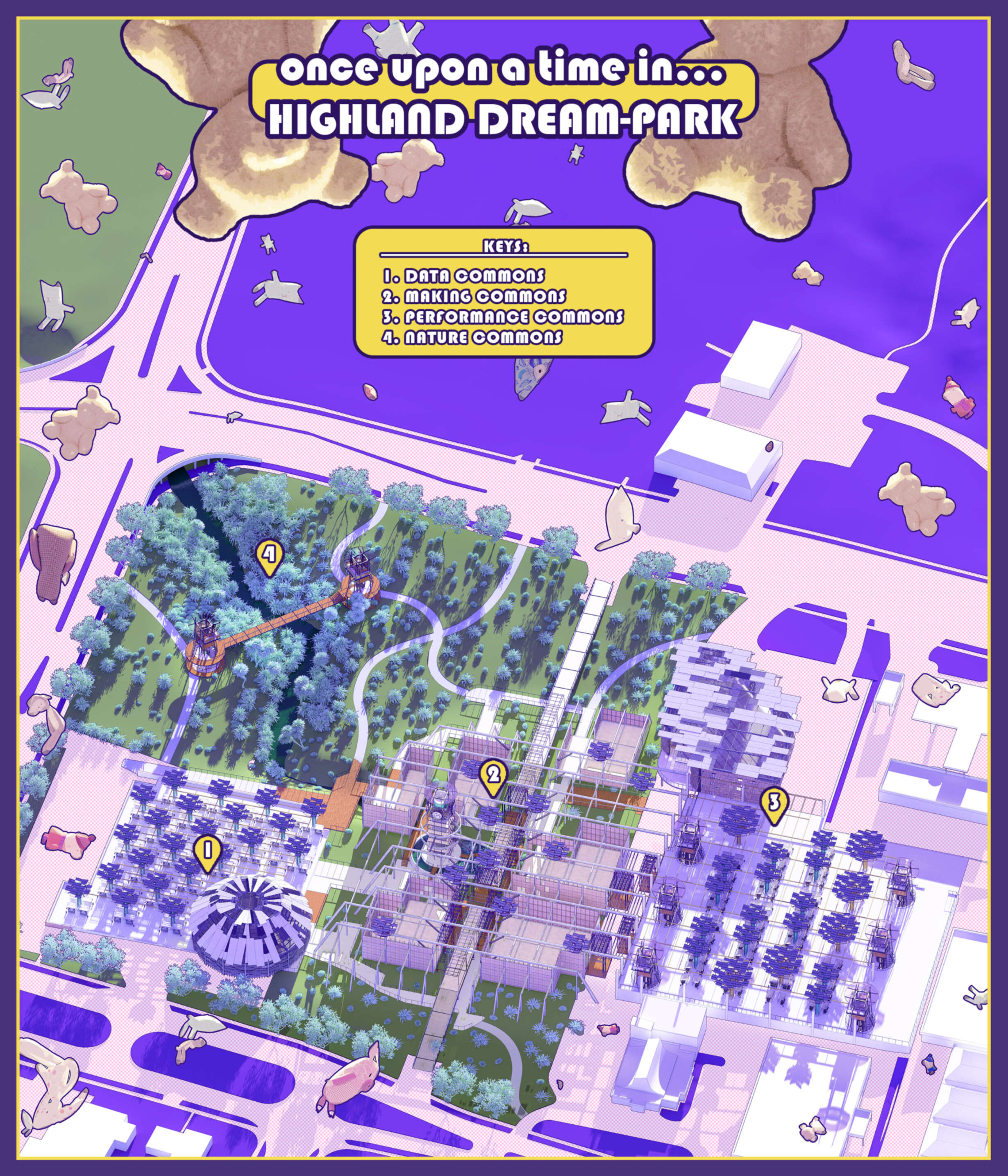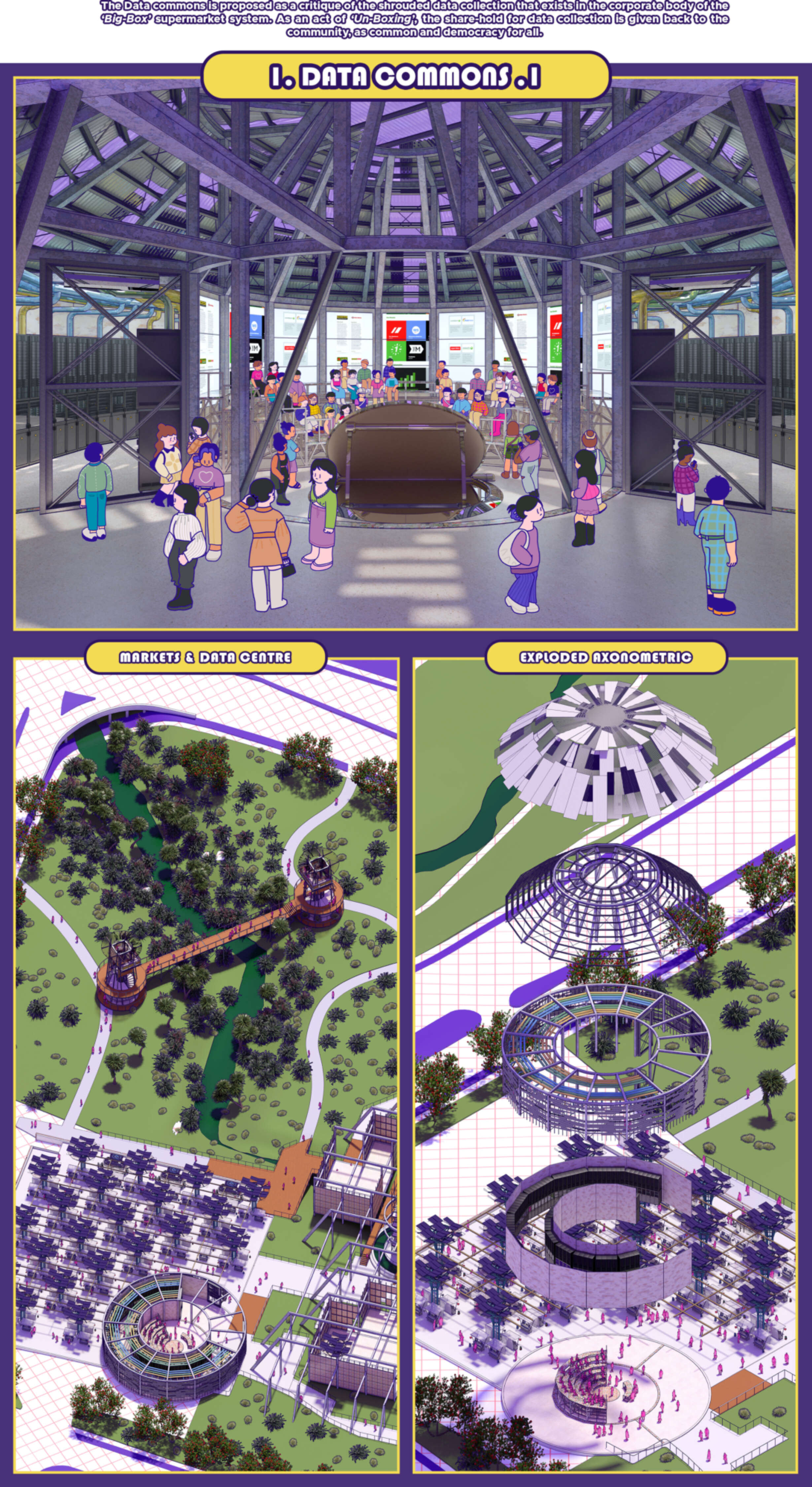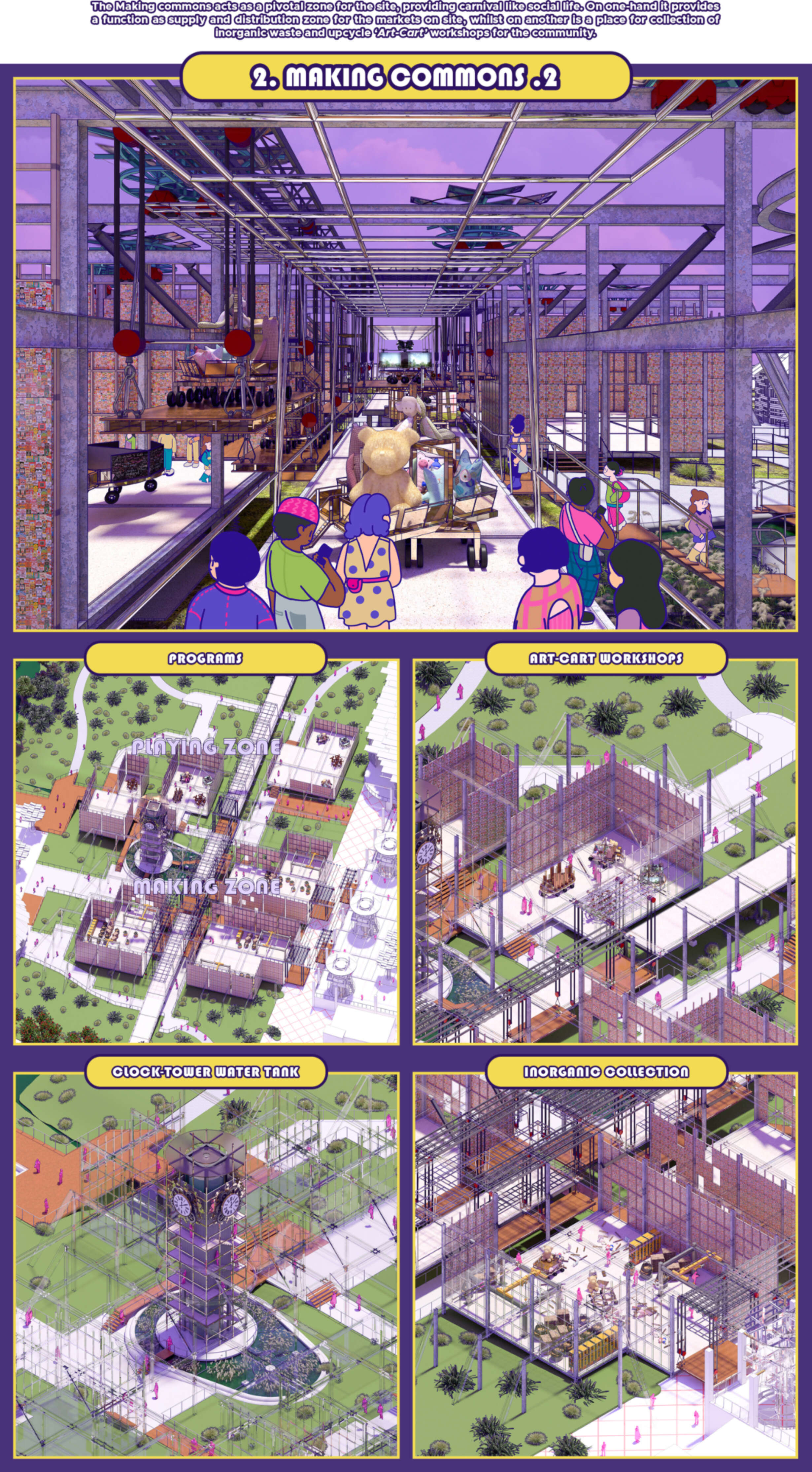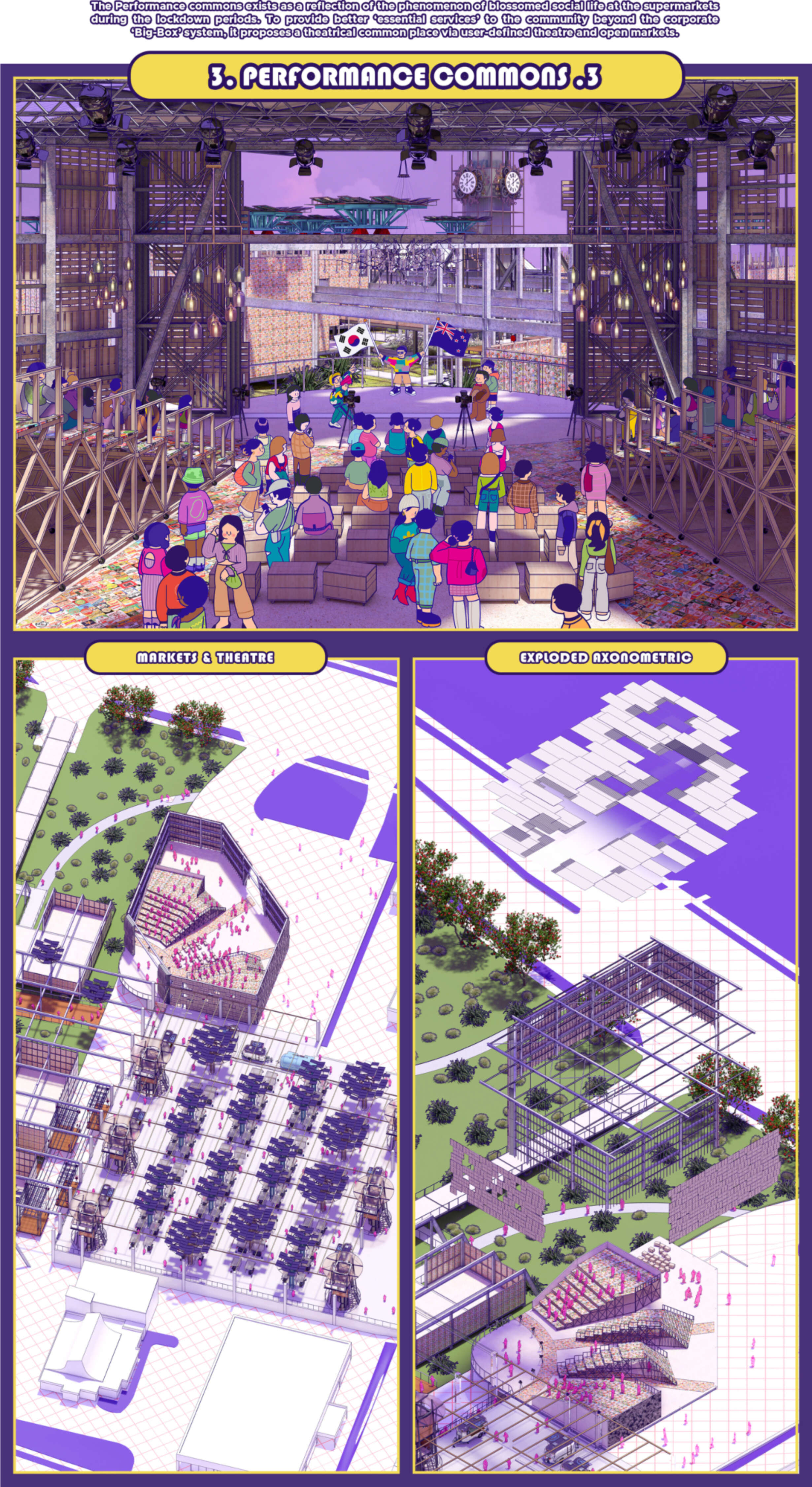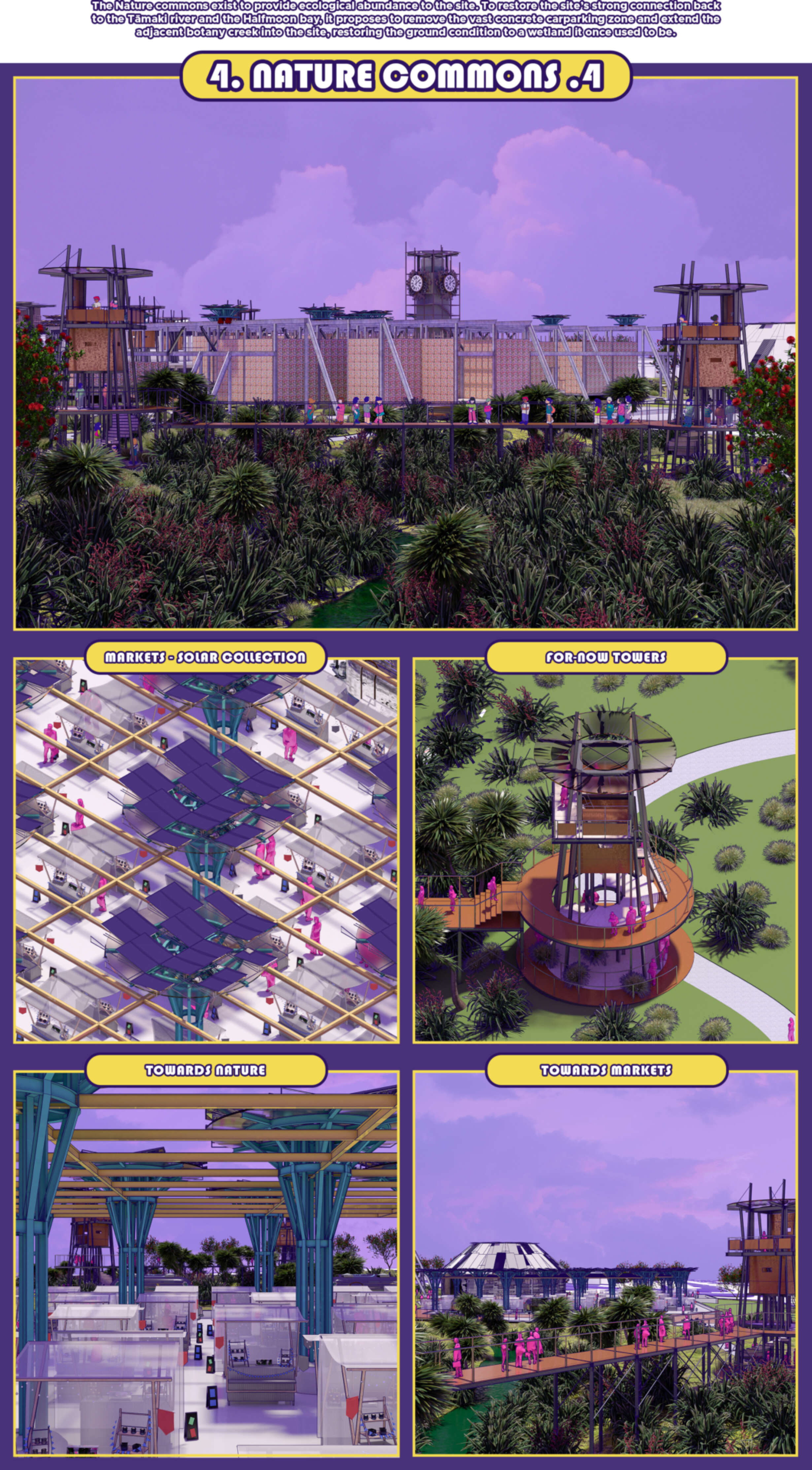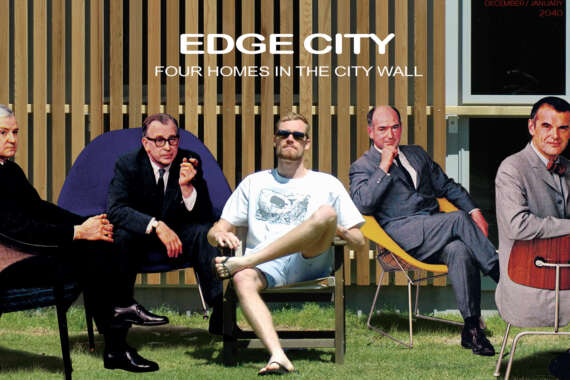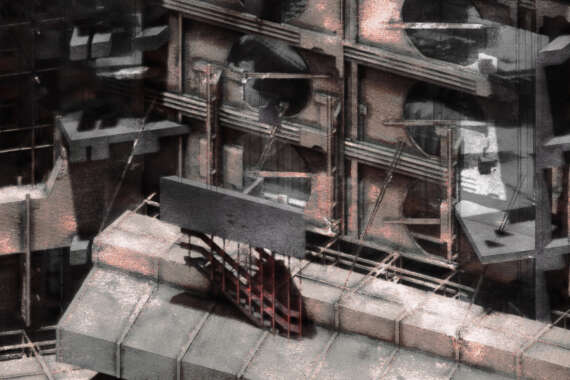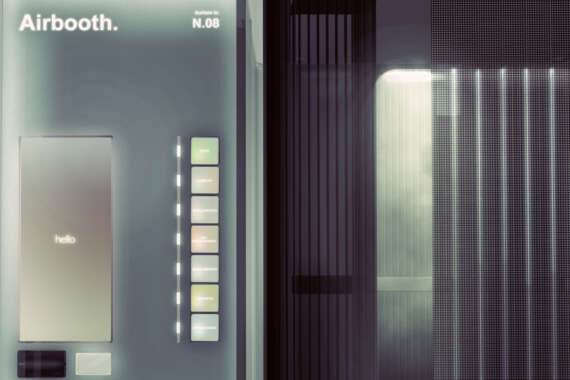With 2020's pandemic, unprecedented social, economic and urban shifts have reshaped how we think about public spaces and the sense of belonging generated by dwellings, neighbourhoods, cities and nations. It is this disjunctive play in the system that the project considers, asking how can the urban experience and its communities be reimagined?
Despite the difficulties carried by COVID-19, a certain deviation from 'normal' ways of living has suggested alternative economies and modes of interaction; economies centred by gifting, and interactions driven by intuitive play. In short, what has become imaginable are forms of carnival-like living. As such, this project tests the potential of the 'carnival condition' in Highland Park Town Centre, Auckland. Interestingly, this town is experiencing a territorial/catchment dispute between two large supermarket retailers, Countdown and PAK'nSAVE.
Initially owned by the Highland Park Town Centre, the Foodstuff Group acquired the site in 2017 where they are now proposing to build a new PAK'nSAVE. With this pivot in retail boxes, a provocative redundancy defines the site, upon which this design research aims to capitalise.
Rethinking marketing mechanisms driven by curiosity by way of Frank Cochoy's consideration of modes of market seduction, the project intends a more general critique of 'big box' retail systems and their control of data collection.1
Sought at the Highland Park Town Centre is a reassertion of town and centre, one giving architectural and urban expression to data democracy and its play of local belonging.
